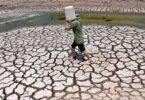Jared Gans
International negotiators have agreed to craft a treaty to end plastic pollution with a draft due in November.
The United Nations Environment Programme (UNEP) said in a release on Saturday that the second session of the Intergovernmental Negotiating Committee, which formed to develop a legally binding instrument on plastic pollution, concluded in Paris with a mandate for the committee’s chair to prepare a draft before the next session in Nairobi, Kenya, in November.
The release states that more than 700 member state delegations and 900 observers from non-governmental organizations attended the meeting.
UNEP Executive Director Inger Anderson said she is encouraged by the progress made at the session and urged member states to continue their momentum toward creating a treaty on this topic.
“The world is calling for an agreement that is broad, innovative, inclusive and transparent, one that leans on science and learns from stakeholders, and one that ensures support for developing nations,” Anderson said.
She said plastic has been a “default option” for too long, and the committee has the power to transform that. She said products should be redesigned to use less plastic, especially those “unnecessary and problematic.”
Anderson added that systems and products should be redesigned to increase opportunities for reusing and recycling and packaging and shipping could also use less plastic.
The U.N. Environment Assembly originally requested in March 2022 that the director of the UNEP form the committee to include binding and voluntary commitments on plastic pollution. The committee began its work in the second half of last year and is set to conclude by the end of 2024.
Most plastics are created from fossil fuels.
A coalition of governments led by Norway and Rwanda are pushing for plastic pollution to be ended completely by 2040 by cutting production and placing limits on some chemicals used in plastic. Other countries with large petroleum industries like the United States, China and Saudi Arabia are more focused on recycling and have called for rules based on country instead of equal limits.
Courtesy: thehill







